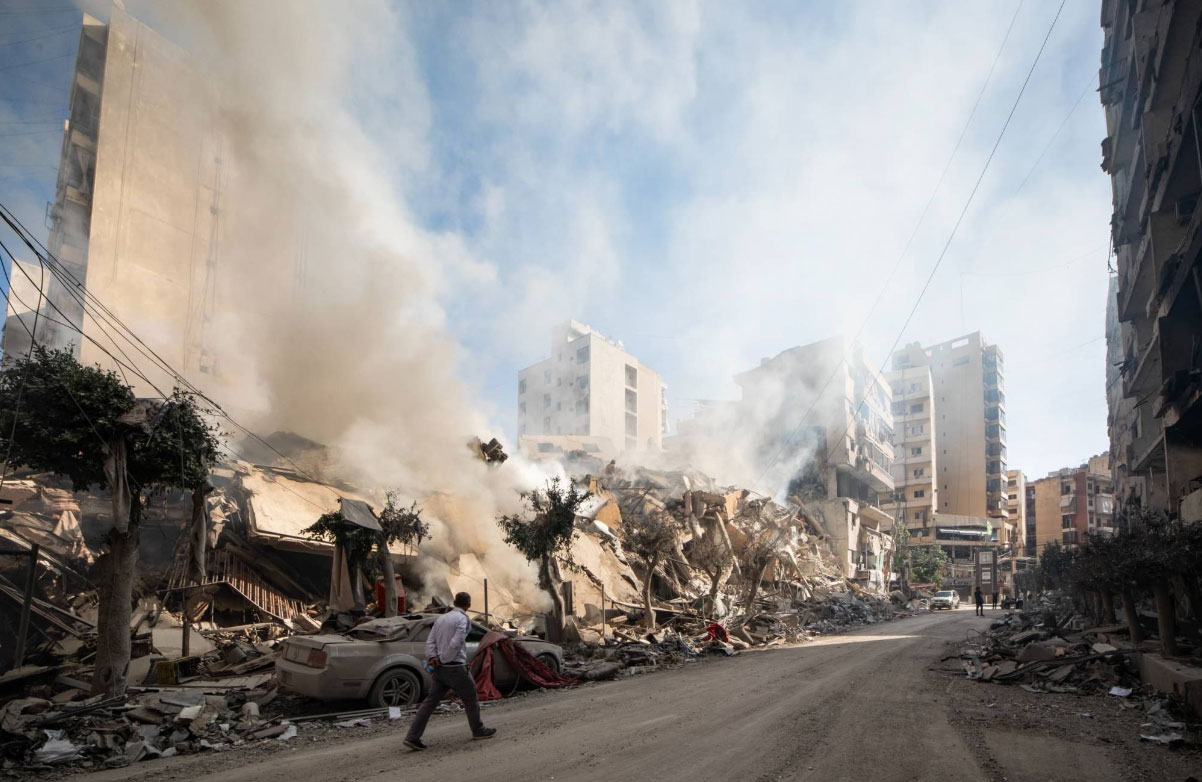In the Middle East, the theater of war between Israel and Iran is an unrelenting cycle of tension, aggression, and retaliation. For years, these two countries have engaged in indirect hostilities, often through proxy organizations like Hezbollah in Lebanon and Hamas in Gaza. Their conflict isn’t just a clash of ideology or territory; it’s a high-stakes chess game. Iran is aiming for a regional and strategic military presence with an economic point on the Mediterranean coast. Unfortunately, Lebanese citizens are paying the highest price with their lives, land, and opportunity for progress.
Lebanon, a small but resilient nation, finds itself at the heart of this battle not by choice but by circumstance. Hezbollah, funded and equipped by Iran, operates as both a political party and an armed militia within Lebanon’s borders. Its allegiance to Tehran often supersedes any duty to the Lebanese state, leaving the country vulnerable to instability and hostilities. This leaves Lebanese citizens with little say in matters of war and peace, despite bearing the brunt of conflict. The result? A Lebanon held hostage by regional power plays, deprived of the peace and prosperity it so desperately needs and deserves.
Imagine the possibility of a sweeping international agreement involving Israel, Iran, the United States, and key global allies to dismantle Hezbollah and Hamas. For Israel, this would mean greater security; for Iran, it could offer economic incentives and a step toward normalizing its place on the world stage. And for Lebanon, it could mean liberation from foreign interference and a chance to rebuild on its own terms. Such an agreement could mark a turning point for Lebanon’s future, freeing it from the cycle of violence and opening doors to stability and development.
For this vision to take shape, however, the Lebanese people must play an active role. It’s time for Lebanon to stand up and reclaim its future from Iranian influence. Many Lebanese have long recognized the toll that Hezbollah’s alignment with Iran takes on their lives. But to genuinely move forward, Lebanon needs unity and a collective voice calling for sovereignty, peace, and self-determination. This means supporting leaders and institutions that prioritize Lebanese interests over foreign agendas and refusing to allow Lebanon to be a pawn in the Israel-Iran confrontation.
The path will not be easy, nor will the shift come overnight. But every movement begins with the courage to say, “Enough.” Lebanon’s youth, intellectuals, business leaders, and everyday citizens deserve the chance to live without the constant specter of conflict and economic despair. The theater of war between Israel and Iran has dictated Lebanon’s fate for too long. The time is now for Lebanon to chart a new course, one focused on building a prosperous, independent nation.
The world stands at a pivotal moment, where diplomacy and collaboration could yield an unprecedented breakthrough in the Middle East. Let us hope that leaders, both within and outside Lebanon, recognize the opportunity before them—a chance to break free from the chains of foreign influence, dismantle the specters of Hezbollah and Hamas, and allow Lebanon to reclaim its sovereignty and its future.


